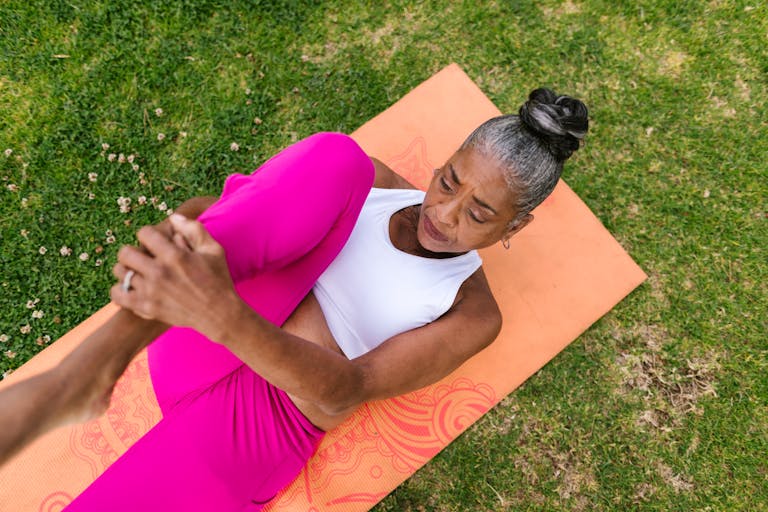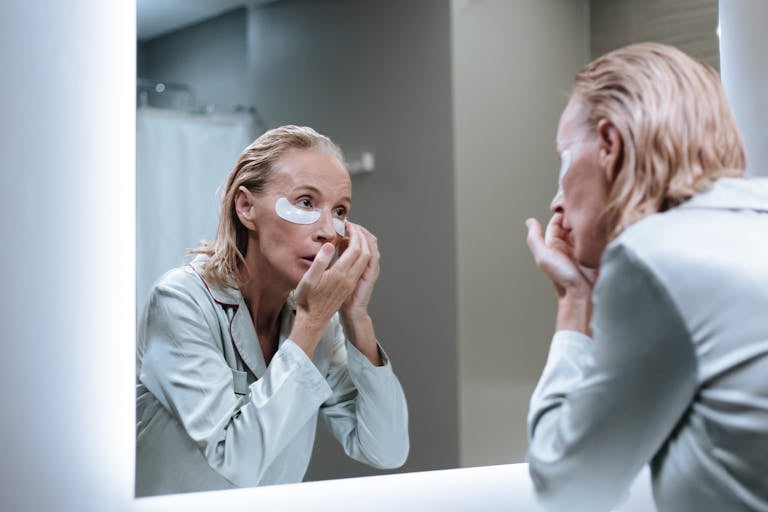Sleep and Recovery for Cellular Regeneration and Anti-Aging
Have you ever woken up after a truly restful night of sleep and felt like a completely new person? That’s because, while you were snoozing, your body was hard at work repairing itself at the cellular level.
What if I told you that this nightly ritual is the key to slowing down the aging process, enhancing your skin’s glow, and boosting your overall health?
Sleep isn’t just about recharging your energy. It’s the ultimate anti-aging powerhouse that taps into your body’s natural ability to heal and renew itself on a cellular level. Science shows that poor sleep can accelerate aging, while quality restorative sleep can reverse its effects, leaving you feeling younger, healthier, and more vibrant.
In this article, we’ll uncover the fascinating connection between sleep and cellular regeneration, how it impacts aging, and how you can optimize your nightly rest for maximum recovery and rejuvenation. Ready to wake up to a more youthful you? Let’s dive into the science and secrets of sleep.
The Science of Sleep: How Cellular Regeneration Works
Your body is a masterful creation designed to heal itself, and sleep is the time when it does its best work. Here’s what happens during a good night’s sleep:

1. Cellular Repair and Regeneration:
During deep sleep, your body repairs damaged cells, eliminates toxins, and regenerates new ones. This process is critical for keeping your skin healthy, repairing muscle tissue, and boosting your immune system.
2. Growth Hormone Production:
While you sleep, your body produces growth hormones, which are essential for tissue repair and cell regeneration. These hormones not only help your body recover from daily wear and tear but also contribute to maintaining a youthful appearance.
3. Collagen Production:
Sleep also triggers collagen production, the protein responsible for keeping your skin firm, smooth, and wrinkle-free. Without enough rest, collagen breaks down faster, leading to premature aging and sagging skin.
4. Brain Detoxification:
Your brain has its own “cleaning crew” called the glymphatic system. During sleep, this system removes harmful waste products that can accelerate aging and cognitive decline if left unchecked.
How Sleep Affects the Aging Process
When we don’t get enough sleep—or the quality of our sleep is poor—it wreaks havoc on our bodies. Here are some ways sleep deprivation accelerates aging:
- Increased Stress Hormones: Lack of sleep raises cortisol levels, which can break down collagen and lead to skin damage.
- Inflammation: Chronic sleep deprivation increases inflammation in the body, which contributes to aging-related diseases like heart disease, diabetes, and Alzheimer’s.
- Weakened Immune System: Poor sleep compromises your immune system, making it harder for your body to fight infections and repair damage.
- Fine Lines and Dark Circles: Even a single night of bad sleep can leave you with visible signs of aging, like dark under-eye circles and dull skin.
Tips to Optimize Sleep for Anti-Aging and Cellular Regeneration
Now that we understand how powerful sleep is for anti-aging, here’s how you can ensure you’re getting the most restorative rest possible:
1. Stick to a Sleep Schedule:
Go to bed and wake up at the same time every day, even on weekends. Consistency helps regulate your body’s internal clock and improves sleep quality.
2. Create a Sleep Sanctuary:
Make your bedroom a haven for rest. Keep the room dark, quiet, and cool. Invest in a comfortable mattress and pillow to support quality sleep.
3. Limit Screen Time Before Bed:
Blue light from screens can disrupt your body’s production of melatonin, the hormone that regulates sleep. Turn off devices at least an hour before bedtime.

4. Focus on Nutrition:
Eat foods rich in magnesium, tryptophan, and melatonin, such as bananas, almonds, and cherries, to support better sleep. Avoid caffeine and heavy meals in the evening.
5. Practice Relaxation Techniques:
Try deep breathing, meditation, or a warm bath to calm your mind and body before bed. This helps you fall asleep faster and enjoy deeper rest.
6. Get Regular Exercise:
Physical activity during the day improves sleep quality, but avoid intense workouts close to bedtime, as they can be too stimulating.
7. Consider Sleep Supplements (With Caution):
If you struggle with sleep, consider natural supplements like melatonin, magnesium, or valerian root. Always consult with a healthcare provider before trying new supplements.
The Power of REM and Deep Sleep
Not all sleep is created equal. For maximum cellular regeneration, focus on the two most restorative stages of sleep:
1. REM Sleep: This is when your brain processes emotions and memories, reducing stress and enhancing mental clarity.
2. Deep Sleep: The most critical phase for physical recovery and repair, deep sleep is when growth hormone production and cell regeneration peak.
To achieve more deep sleep, try calming bedtime routines and avoid stimulants like caffeine in the afternoon.
Conclusion: Your Best Anti-Aging Tool is Free
The secret to glowing skin, a sharp mind, and a healthy, youthful body doesn’t come in a jar or a pill—it comes from getting quality sleep. By prioritizing restorative sleep, you’re giving your body the time and space it needs to repair, regenerate, and rejuvenate at the cellular level.
Start implementing these tips tonight, and over time, you’ll notice not just how much better you feel, but how much younger and healthier you look. Sleep isn’t just rest—it’s the ultimate anti-aging elixir. So, close your eyes, let your body do its magic, and wake up ready to take on the world with a radiant glow.







